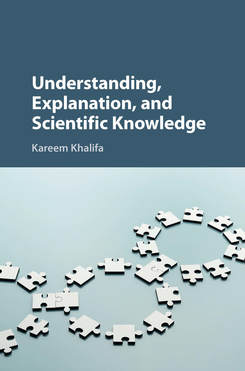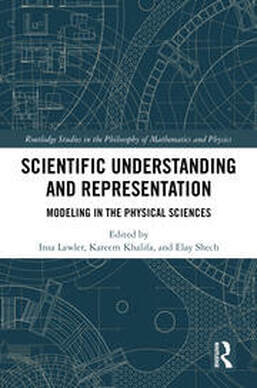Understanding
At the end of the twentieth century, philosophical discussions of understanding remained undeveloped, guided by a 'received view' that takes understanding to be nothing more than knowledge of an explanation. More recently, however, this received view has been criticized, and bold new philosophical proposals about understanding have emerged in its place. I argue that the received view should be revised but not abandoned. In doing so, I clarify and answer the most central questions in this burgeoning field of philosophical research: what kinds of cognitive abilities are involved in understanding? What is the relationship between the understanding that explanations provide and the understanding that experts have of broader subject matters? Can there be understanding without explanation? How can one understand something on the basis of falsehoods? Is understanding a species of knowledge? What is the value of understanding?
Books
|
2017. Understanding, Explanation, and Scientific Knowledge. Here's my breezy overview of the book's main aims on the Cambridge Blog.
Table of Contents:
|
|
2022. Scientific Understanding and Representation: Modeling in the Physical Sciences. (co-edited with Insa Lawlor and Elay Shech) Featuring "critical conversations" between:
|
Conferences Organized
With Daniel Kostic, I am a co-founder of the annual Scientific Understanding and Representation (SURe) workshop series. We co-organized the first SURe workshop in Bordeaux (2019). Since then, SURe has had annual workshops.
Articles and Book Chapters
- In progress. Paper on understanding, machine learning, and segregation modeling.
- In progress. Paper on understanding and measurement.
- In progress. Paper on scientific understanding and collective agents. (with Sandy Goldberg)
- 2022. Onwards, My Friend! Reply to de Regt. In Scientific Understanding and Representation: Modeling and the Physical Sciences. edited by I. Lawler, K. Khalifa, and E. Shech. London: Routledge.
- 2023. Should Friends and Frenemies of Understanding be Friends? Discussing De Regt. In Scientific Understanding and Representation: Modeling and the Physical Sciences. edited by I. Lawler, K. Khalifa, and E. Shech. London: Routledge.
- 2022. Integrating Philosophy of Understanding with the Cognitive Sciences." Frontiers in Systems Neuroscience. (with F. Islam, J. P. Gamboa, D. A. Wilkenfeld and D. Kostic)
- 2020. Understanding, truth, and epistemic goals. Philosophy of Science. 87 (5):944-956.
- 2019. Is Verstehen scientific understanding? Philosophy of the Social Sciences. 49(4): 282-306.
- 2019. Idealizations and understanding: much ado about nothing? Australasian Journal of Philosophy. 97 (4):673-689. (with Emily Sullivan)
- 2019. Non-factive understanding: a statement and defense. Journal for General Philosophy of Science. 50 (3):345-365. (with Yannick Doyle, Spencer Egan, and Noah Graham)
- 2016. Must understanding be coherent? in Explaining understanding: new perspectives from epistemology and philosophy of science, edited by S. Grimm, C. Baumberger, and S. Ammon (London: Routledge).
- 2015. EMU defended: reply to Newman (2013). European Journal for Philosophy of Science. 5 (3): 377-385.
- 2013. Understanding as explanatory knowledge: the case of Bjorken scaling. Studies in History and Philosophy of Science Part A 44 (3): 384-392. (with Michael Gadomski)
- 2013c. Understanding, grasping, and luck. Episteme 10(1): 1-17.
- 2013b. Is understanding explanatory or objectual? Synthese 190(6): 1153-1171.
- 2013a. The role of explanation in understanding. British Journal for the Philosophy of Science 64(1): 161-187.
- 2012. Inaugurating understanding or repackaging explanation? Philosophy of Science 79(1): 15-37.
- 2011. Understanding, knowledge, and scientific antirealism. Grazer Philosophische Studien 83 (1): 93-112.

